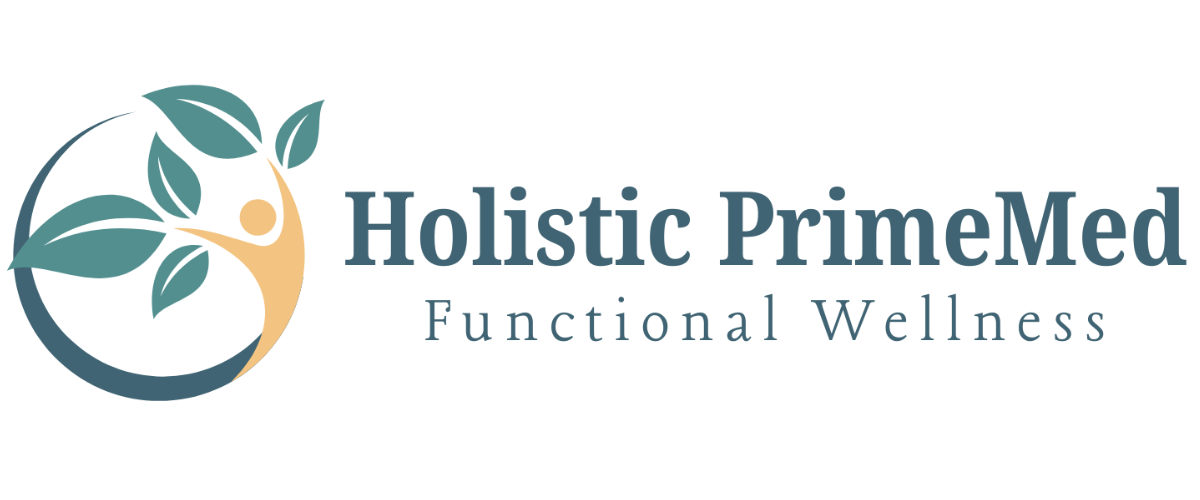How to Treat Autoimmune & Inflammation
How to Treat Autoimmune & Inflammation
Addressing autoimmune diseases and chronic inflammation requires a comprehensive approach that targets the underlying causes rather than merely alleviating symptoms. Functional medicine offers personalized strategies to restore immune balance and reduce inflammation. Here's an integrated plan:
1. Comprehensive Evaluation
• Detailed Health Assessment: Gather an in-depth medical history, including genetic predispositions, environmental exposures, and lifestyle factors, to identify potential triggers of autoimmunity and inflammation.
• Advanced Laboratory Testing: Conduct specialized tests to assess immune function, identify hidden infections, detect food sensitivities, and evaluate nutrient deficiencies.
2. Personalized Anti-Inflammatory Nutrition
• Whole Foods Diet: Emphasize the consumption of unprocessed, nutrient-dense foods rich in antioxidants and phytonutrients to combat oxidative stress and inflammation.
• Omega-3 Fatty Acids: Incorporate sources like fatty fish (salmon, mackerel), flaxseeds, and walnuts to leverage their anti-inflammatory properties.
• Anti-Inflammatory Spices: Add turmeric and ginger to meals; combining turmeric with black pepper enhances curcumin absorption, significantly boosting its efficacy.
3. Gut Health Optimization
• Microbiome Support: Use probiotics and prebiotics to balance gut flora, which plays a crucial role in immune modulation.
• Gut Barrier Integrity: Implement protocols to heal the gut lining, reducing systemic inflammation and autoimmune triggers.
4. Stress Management and Lifestyle Modifications
• Mind-Body Practices: Incorporate stress-reduction techniques such as meditation, yoga, and deep-breathing exercises to lower cortisol levels and inflammation.
• Regular Physical Activity: Engage in consistent, moderate exercise to enhance immune function and reduce chronic inflammation.
• Sleep Hygiene: Ensure 7-9 hours of quality sleep per night to support immune regulation and recovery.
5. Targeted Supplementation
• Nutrient Support: Supplement with vitamin D, magnesium, and omega-3s to modulate immune responses and decrease inflammation.
• Herbal Anti-Inflammatories: Consider curcumin (from turmeric) and boswellia for their potent anti-inflammatory effects.
7. Support Liver and Gallbladder Function
• Reduce Toxin Exposure: Identify and minimize contact with environmental toxins, including heavy metals and endocrine-disrupting chemicals, that can trigger immune dysregulation.
• Support Detox Pathways: Enhance the body's natural detoxification processes through adequate hydration, a nutrient-rich diet, and possibly sauna therapy.
7. Personalized Functional Medicine Plan
• Individualized Care: Work with a functional medicine practitioner to develop a tailored plan addressing specific triggers and imbalances unique to your condition.
• Continuous Monitoring: Regularly reassess and adjust the treatment plan based on progress and any new findings to ensure optimal outcomes.
By implementing this comprehensive, personalized approach, it's possible to effectively manage autoimmune diseases and chronic inflammation, leading to improved health and quality of life.
Take the First Step Toward Better Health
Addressing autoimmune diseases and chronic inflammation requires a comprehensive approach that targets the underlying causes rather than merely alleviating symptoms. Functional medicine offers personalized strategies to restore immune balance and reduce inflammation. Here's an integrated plan:
1. Comprehensive Evaluation
• Detailed Health Assessment: Gather an in-depth medical history, including genetic predispositions, environmental exposures, and lifestyle factors, to identify potential triggers of autoimmunity and inflammation.
• Advanced Laboratory Testing:
Conduct specialized tests to assess immune function, identify hidden infections, detect food sensitivities, and evaluate nutrient deficiencies.
2. Personalized Anti-Inflammatory Nutrition
• Whole Foods Diet: Emphasize the consumption of unprocessed, nutrient-dense foods rich in antioxidants and phytonutrients to combat oxidative stress and inflammation.
• Omega-3 Fatty Acids: Incorporate sources like fatty fish (salmon, mackerel), flaxseeds, and walnuts to leverage their anti-inflammatory properties.
• Anti-Inflammatory Spices: Add turmeric and ginger to meals; combining turmeric with black pepper enhances curcumin absorption, significantly boosting its efficacy.
3. Gut Health Optimization
• Microbiome Support: Use probiotics and prebiotics to balance gut flora, which plays a crucial role in immune modulation.
• Gut Barrier Integrity: Implement protocols to heal the gut lining, reducing systemic inflammation and autoimmune triggers.
4. Stress Management and Lifestyle Modifications
• Mind-Body Practices: Incorporate stress-reduction techniques such as meditation, yoga, and deep-breathing exercises to lower cortisol levels and inflammation.
• Regular Physical Activity: Engage in consistent, moderate exercise to enhance immune function and reduce chronic inflammation.
• Sleep Hygiene: Ensure 7-9 hours of quality sleep per night to support immune regulation and recovery.
5. Targeted Supplementation
• Nutrient Support: Supplement with vitamin D, magnesium, and omega-3s to modulate immune responses and decrease inflammation.
• Herbal Anti-Inflammatories: Consider curcumin (from turmeric) and boswellia for their potent anti-inflammatory effects.
7. Support Liver and Gallbladder Function
• Reduce Toxin Exposure: Identify and minimize contact with environmental toxins, including heavy metals and endocrine-disrupting chemicals, that can trigger immune dysregulation.
• Support Detox Pathways: Enhance the body's natural detoxification processes through adequate hydration, a nutrient-rich diet, and possibly sauna therapy.
7. Personalized Functional Medicine Plan
• Individualized Care: Work with a functional medicine practitioner to develop a tailored plan addressing specific triggers and imbalances unique to your condition.
• Continuous Monitoring: Regularly reassess and adjust the treatment plan based on progress and any new findings to ensure optimal outcomes.
By implementing this comprehensive, personalized approach, it's possible to effectively manage autoimmune diseases and chronic inflammation, leading to improved health and quality of life.
Take the First Step Toward Better Health
The Vitality Reboot System
A 5-Step Framework for Lasting Wellness:

Assess and Address:
Identify root causes of symptoms through comprehensive assessments.
Plan and Scan:
Develop a personalized vitality plan tailored to your nutritional and hormonal needs.


Guide and Glide:
Transition smoothly into healthier habits with expert guidance.
Check and Correct:
Regular progress reviews ensure ongoing improvement.


